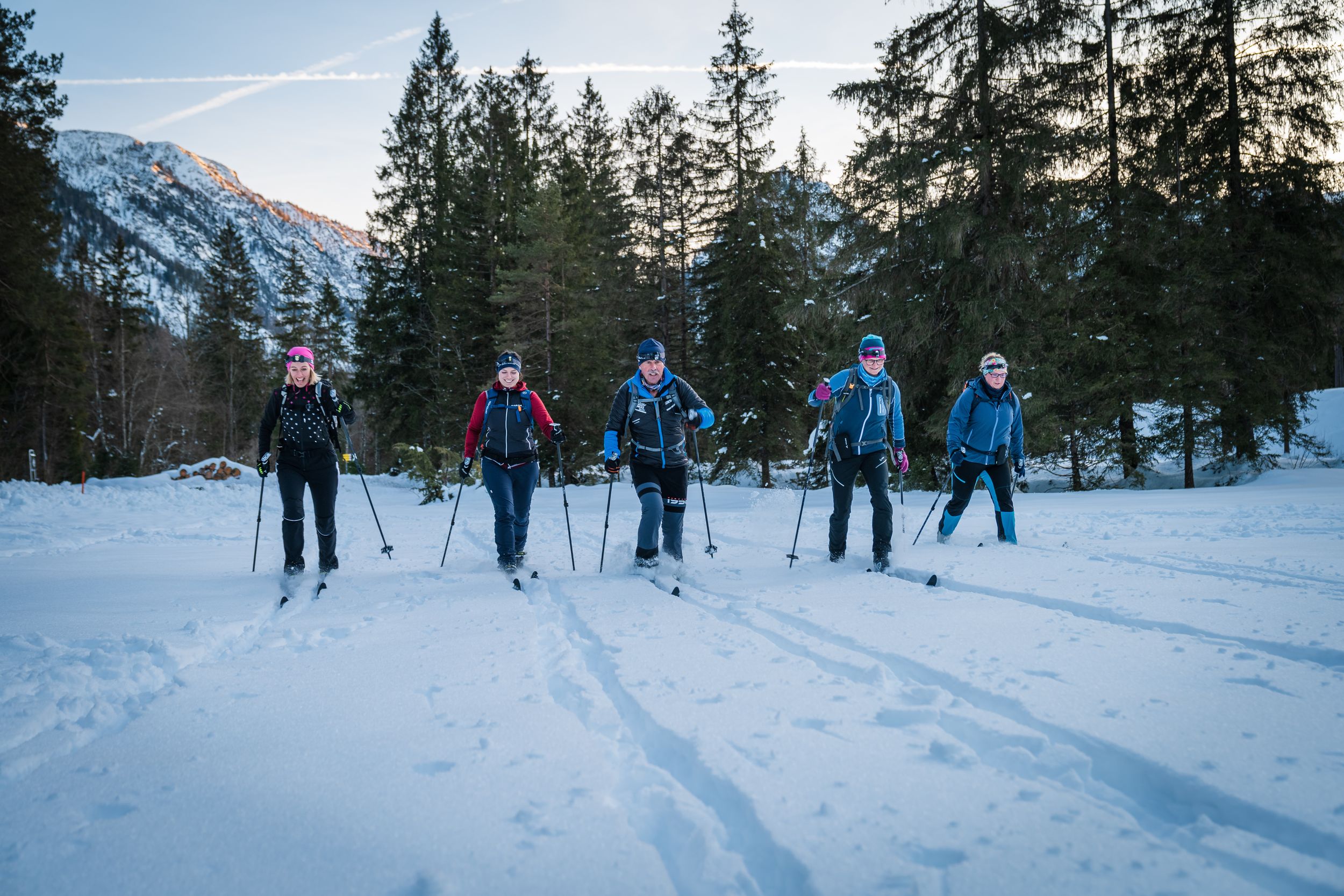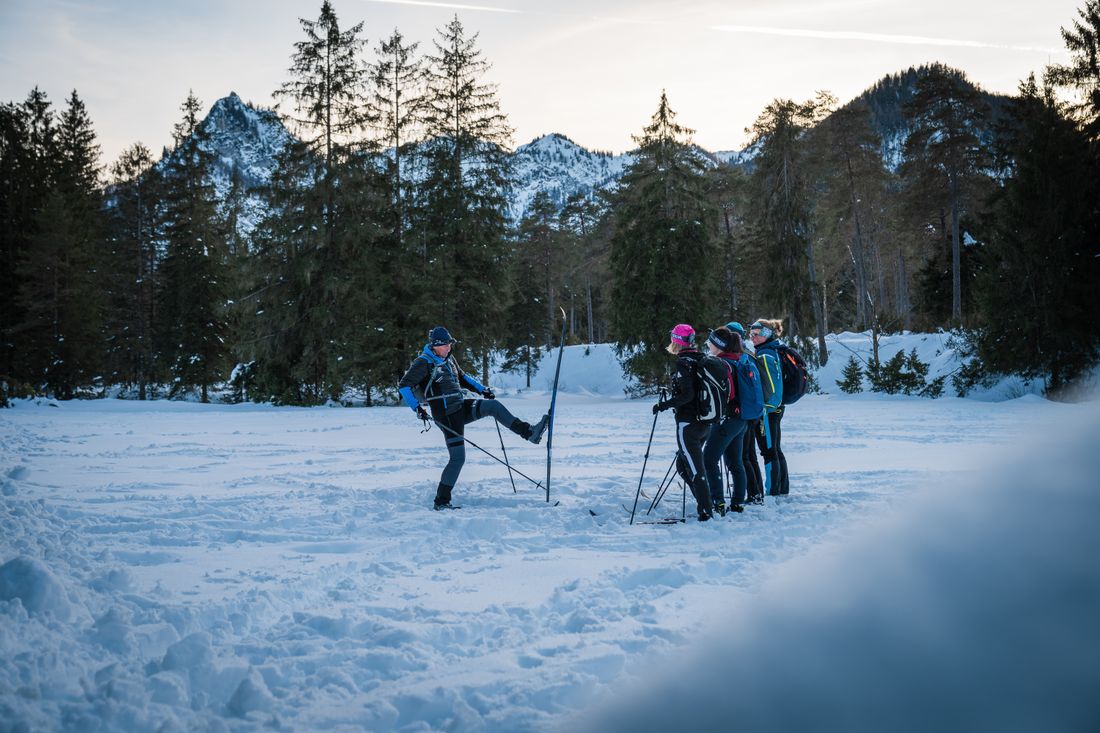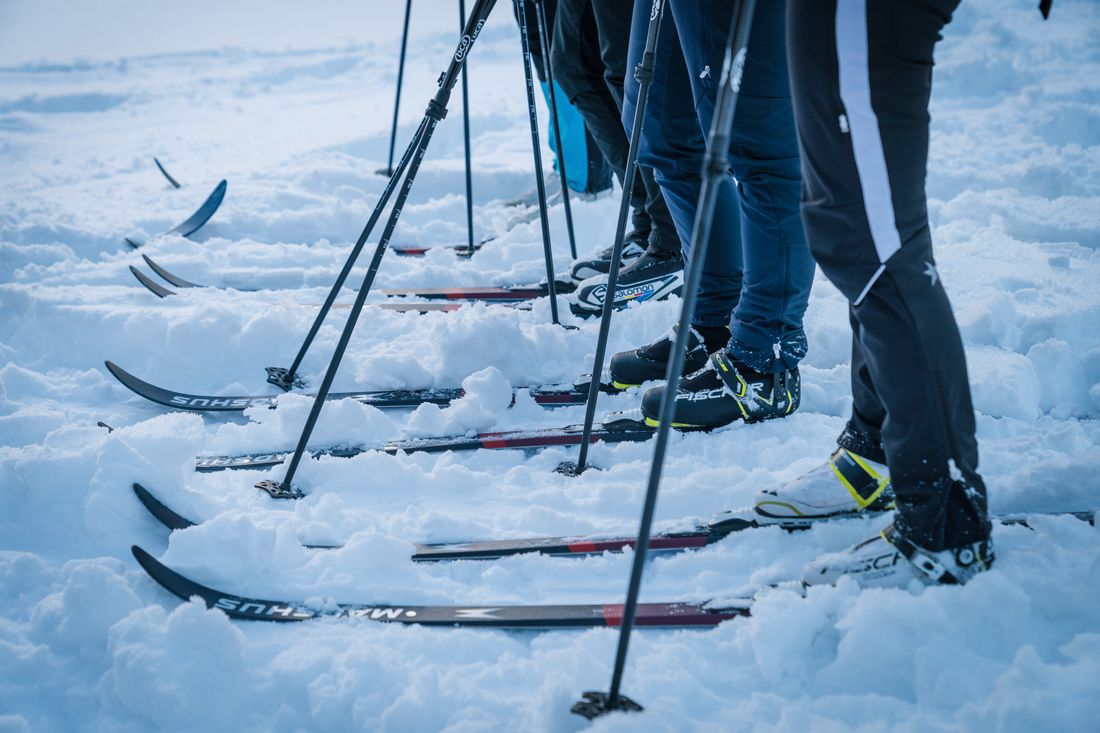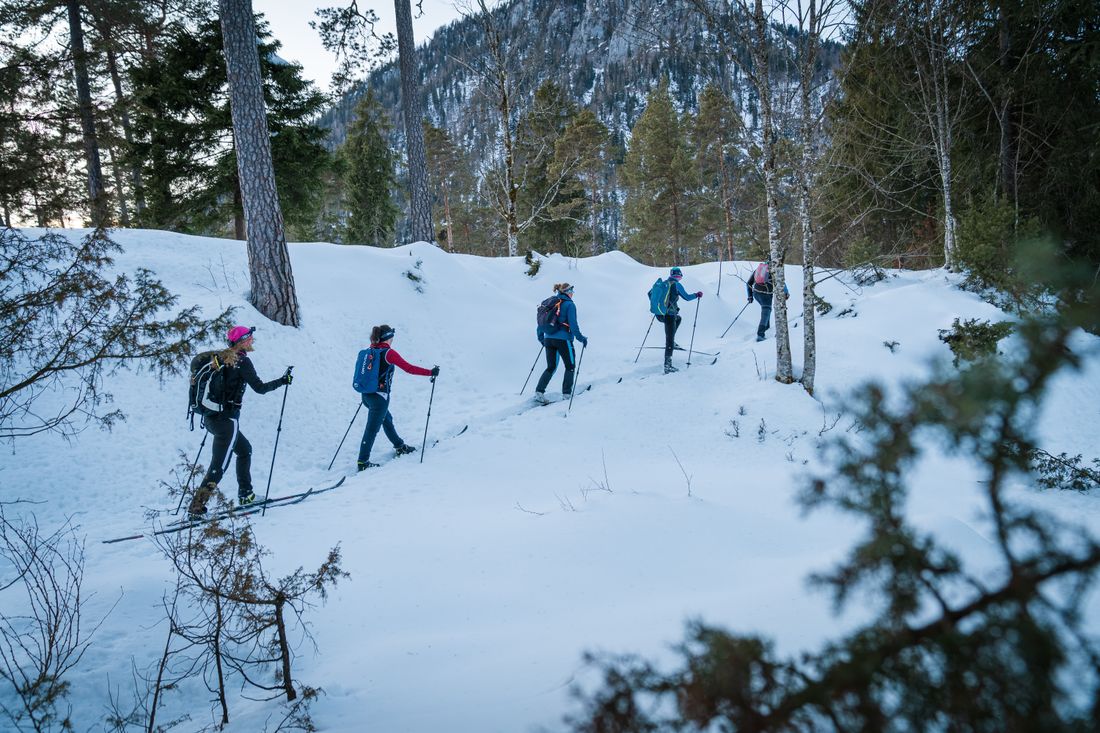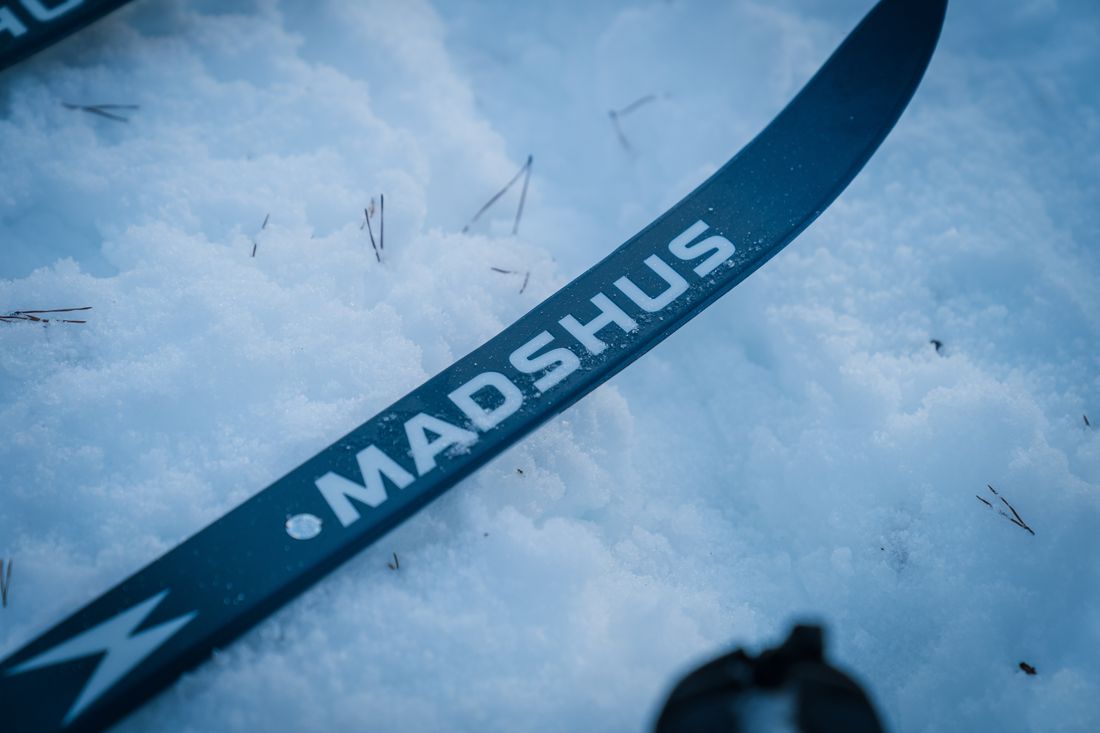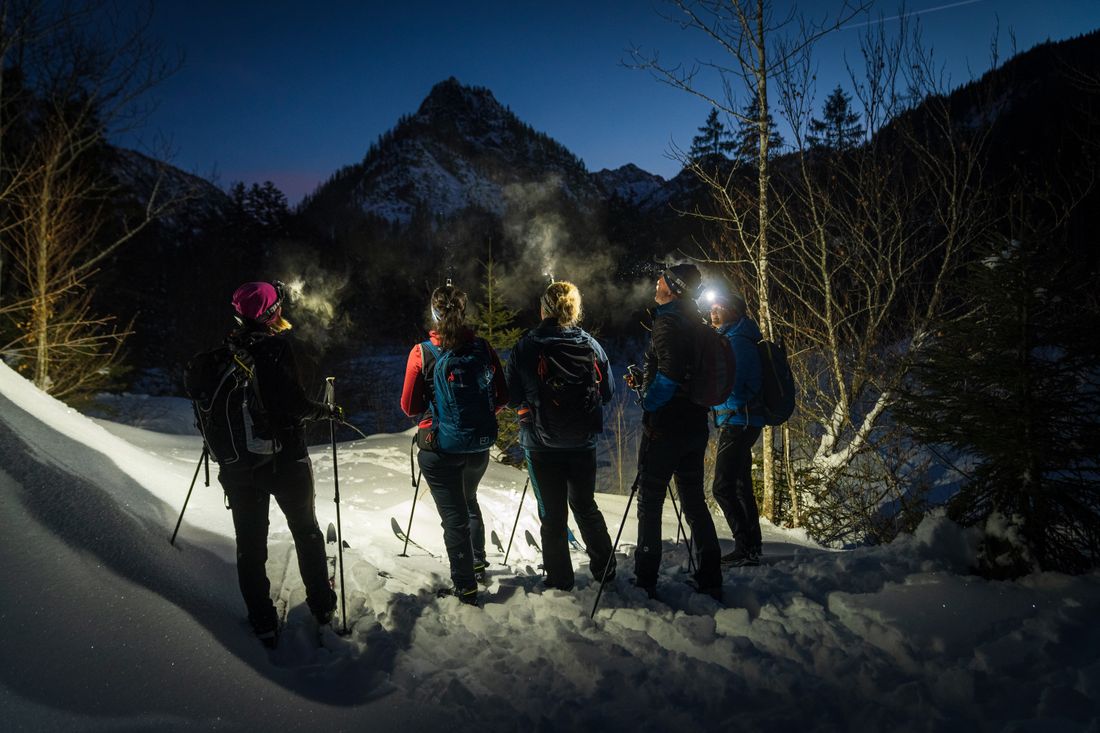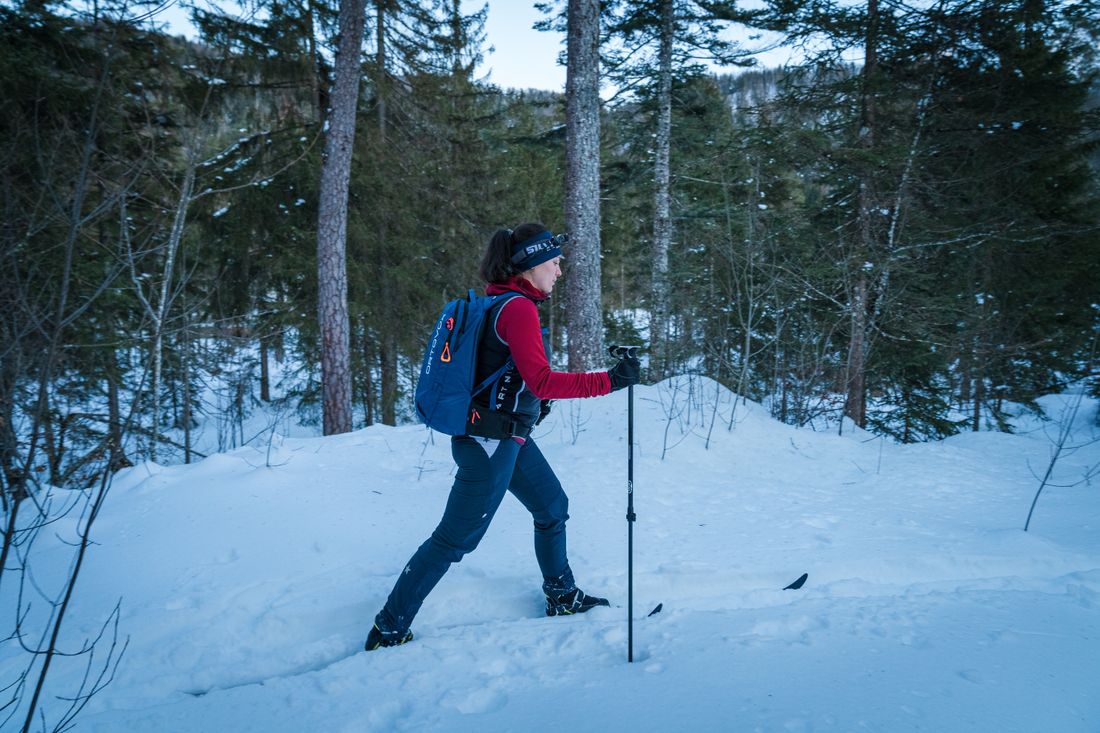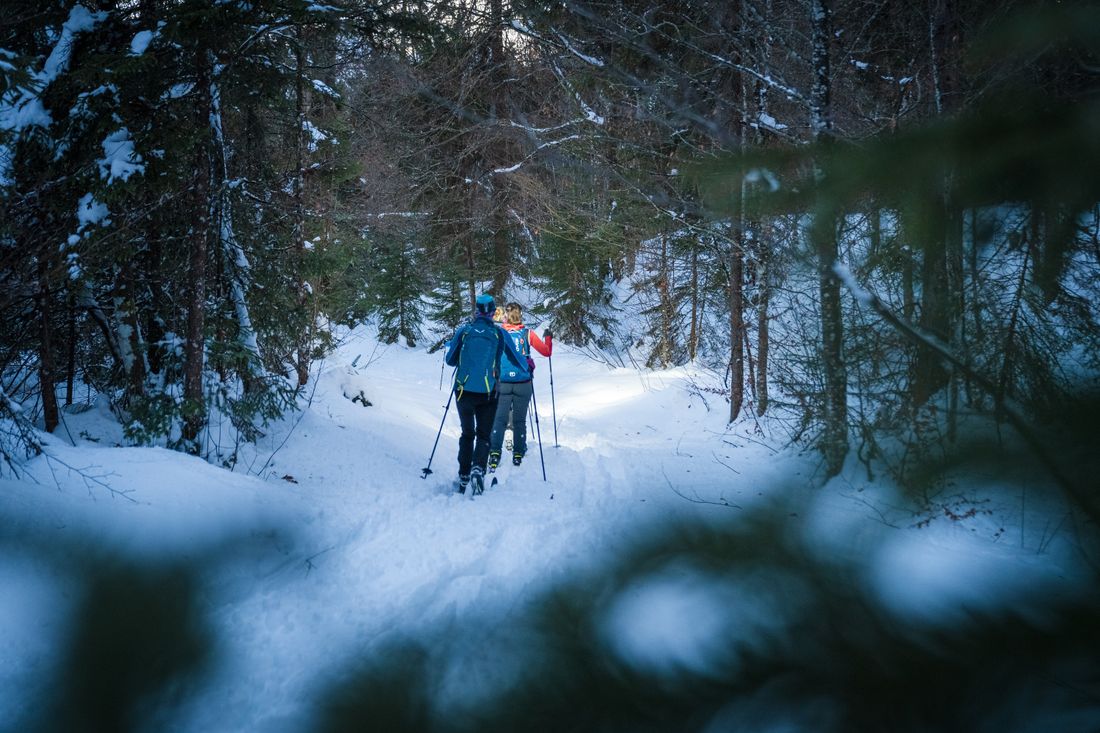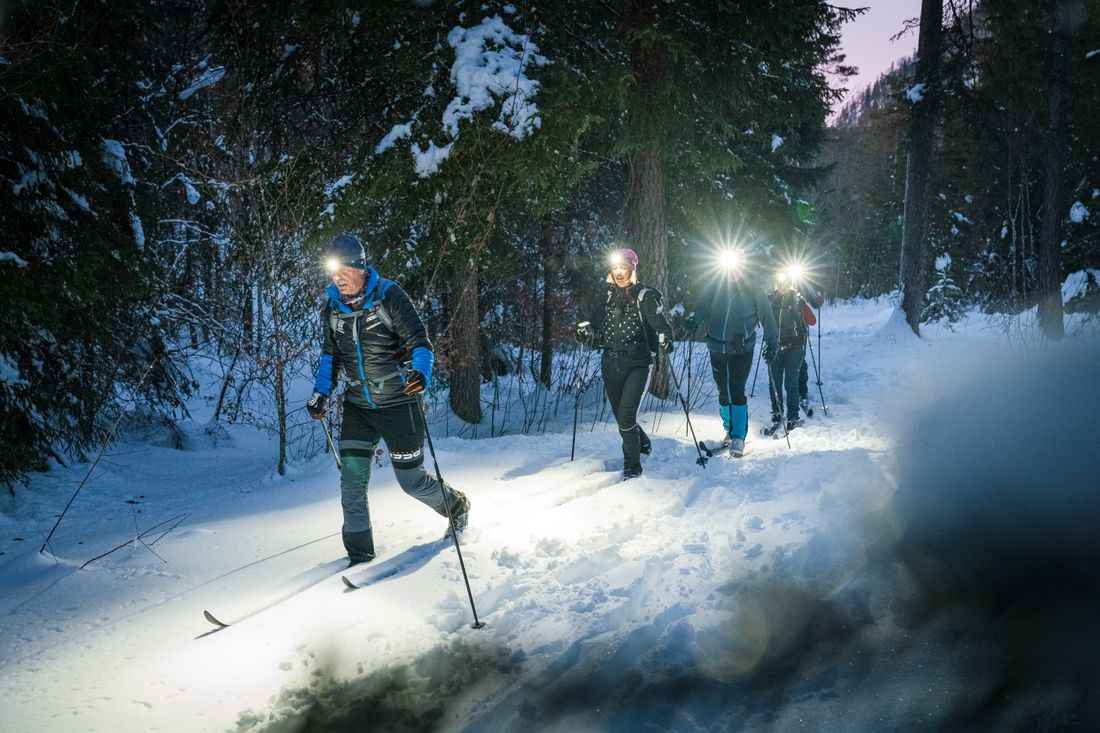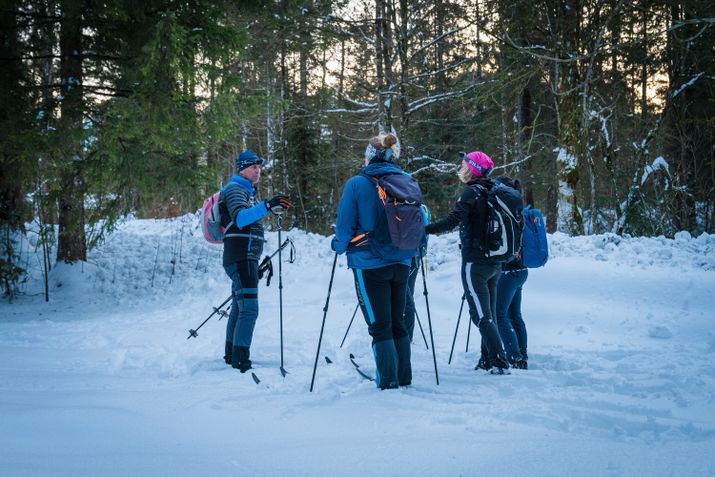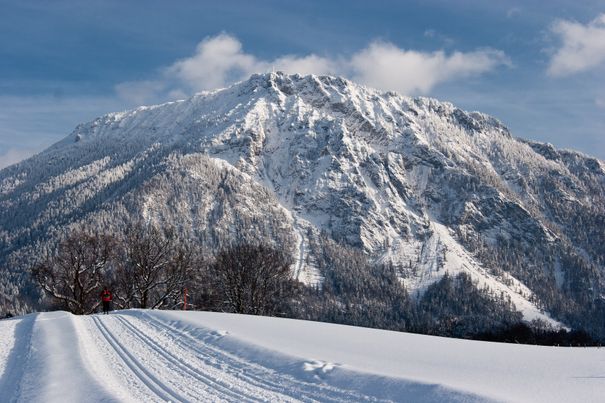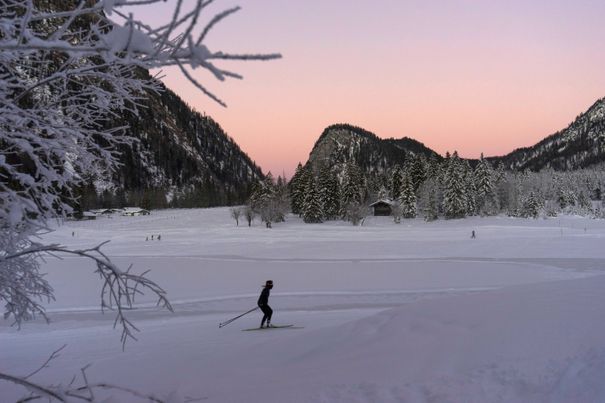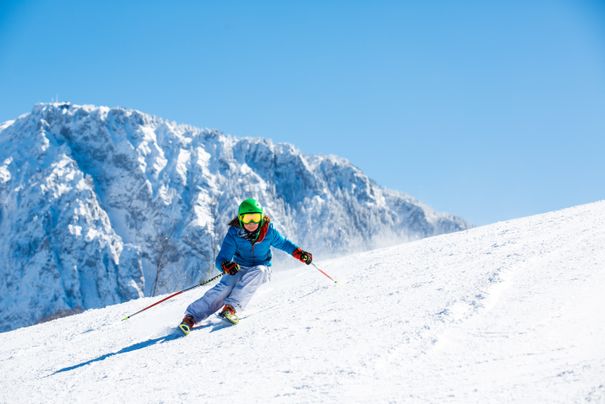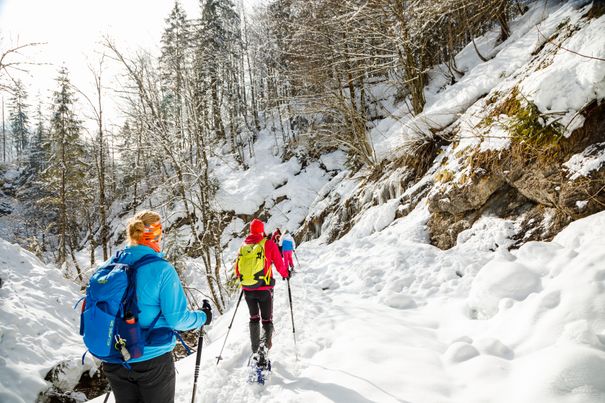Our breath paints little clouds in the air. Mother Hulda, as they say, has done her job well and a beautiful covering of snow lays upon the forest and ground. We are alone. Everything is peaceful and quiet as if somebody had just stopped time. Snow as far as the eye can see, untouched and inviting. We move along at an even pace, following our noses, as we please. There are little obstacles everywhere: hollows and hills, trees and bushes enveloped in snow. Sometimes to the right, sometimes the left. Not mostly uphill, but very leisurely along: through ski-track-free, remote and largely flat terrain.
Backcountry cross-country skiing has its roots in Scandinavia, and means something like “hiking on skis in the hinterlands”. It is also known as Nordic ski touring. The sequence of movements is very similar to that of classic cross-country skiing or ski touring. Only the equipment is a little different. Our special skis are lighter and substantially shorter than classic cross-country skis, which makes us more manoeuvrable. The rough formula is: body height plus 5 to 15 centimetres. The perfect length also depends on weight and skiing ability.
Backcountry skis are also wider, so that we hardly sink even in deep snow - although a snow depth of eight or nine cen- timetres would already be enough for off-trail, cross-country skiing. Our skis have steel edges for short descents and an underfoot zone in the middle. This underfoot zone either has a scaly structure or an integrated fur. The fur version offers the advantage of also being able to cope with short sections wihout problems, whereas the scaled ski slides better. Backcountry cross-country skiing is not at all about speed. It is about completely silent nature and exploring an enchanting winter landscape.
